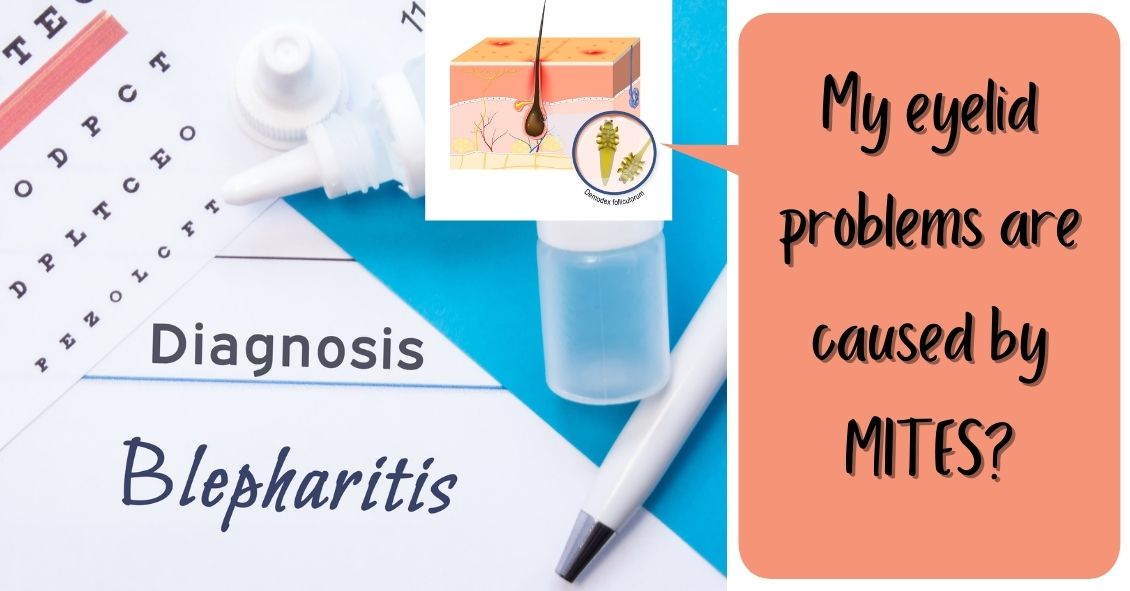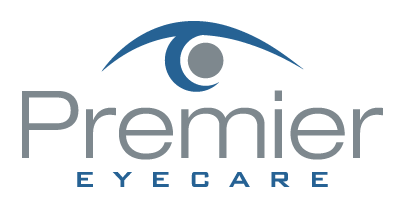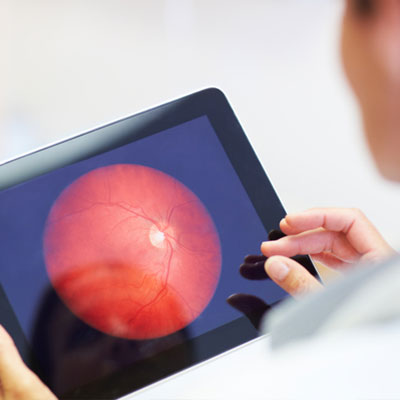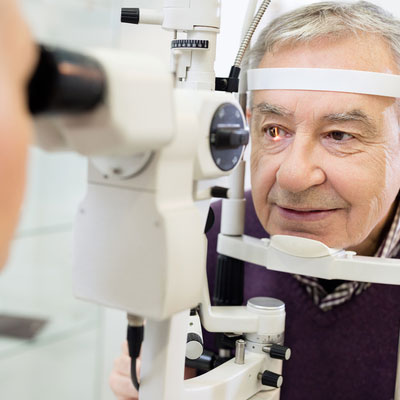
Demodex folliculorum -- often just called demodex -- is a mite that occurs naturally on many people's faces and resides in hair follicles, particularly the follicles of eyelashes. Most of the time, these mites cause no problems whatsoever. However, sometimes an infestation can become particularly parasitic, resulting in unhealthy eyelid margins and leading to problems. Those problems as a group are called blepharitis. Blepharitis can be caused by caused by several things, including allergies, bacterial overgrowth, Rosacea and also by demodex.
Often, diagnosis of mite infestation by your eye doctor can be difficult. The symptoms can mimic other causes of blepharitis, which is one of the most prevalent diseases we see.
The most common sign of a demodex infestation is a cylindrical cuff or "sleeve" at the base of the eyelash. Symptoms include redness, itching, burning, dry eyes and general discomfort in the eyelid.
The probability of demodex infestation increases gradually with age, with nearly 100% of people having demodex in their eyelashes after age 70. If there are no symptoms present, nothing needs to be done about demodex, as it is a natural occurence. If any of the before-mentioned symptoms are present, however, eyelid hygiene with tea tree oil is usually the first line treatment. Tea tree oil is known to kill the mites and there are now several brands of “eye lid scrubs” that come with tea tree oil in them.
There are also often in-office methods available for exfoliating eyelids.
If you're experiencing any demodex symptoms, make an appointment to see what treatment might be right for you.
Article contributed by Dr. Jonathan Gerard, O.D.
The content of this blog cannot be reproduced or duplicated without the express written consent of Eye IQ
This blog provides general information and discussion about eye health and related subjects. The words and other content provided in this blog, and in any linked materials, are not intended and should not be construed as medical advice. If the reader or any other person has a medical concern, he or she should consult with an appropriately licensed physician. The content of this blog cannot be reproduced or duplicated without the express written consent of Eye IQ.












